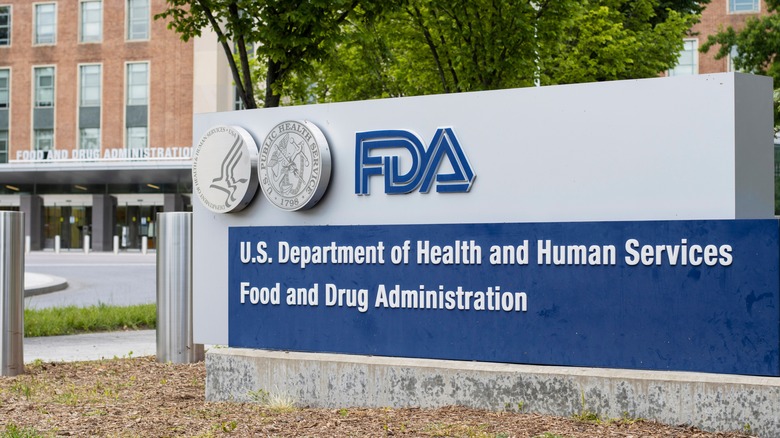Frozen Raspberries Are Being Recalled Over Hepatitis A. Here's What We Know
Food safety is a major consideration for families and individuals, and the U.S. Food and Drug Administration (FDA) is responsible for ensuring certain foods are safe for consumption by the public. The FDA regularly samples products to check for potential safety issues before items are released for sale. However, most food recalls are initiated by the manufacturers, per the FDA. This is the case with the December 3 recall of frozen raspberries.
As CNET explains, the rise in food recalls isn't occurring due to more unsafe food being on the market but because of increased scrutiny on behalf of the FDA and other governmental agencies. That means consumers these days are more aware of (and likely better protected from) serious illness that's potentially caused by food contamination. As for the frozen raspberry recall, there's plenty of FDA information consumers can use to protect themselves and their families from potential illness.
What consumers should know about the raspberry recall
On December 3, the FDA issued a notice providing details on the frozen raspberry recall. Exportadora Copramar conducted a recall of frozen raspberries due to suspicions about Hepatitis A contamination, which the FDA confirmed via testing. The recall affected 1,260 cases of raspberries across nine states: Connecticut, Delaware, Maryland, Massachusetts, New Jersey, New York, Pennsylvania, Rhode Island, and Virginia.
Consumers are encouraged to look at package details to confirm whether their products are included. The contaminated products bear the brand name James Farms and have a "best if used by date" of June 14, 2024. The UPC code for the product is 76069501010; the lot code is CO 22-165.
According to the Mayo Clinic, hepatitis A is a viral infection that affects liver function and causes symptoms including stomach upset, diarrhea, vomiting, abdominal pain, fatigue, diminished appetite, and minor fever within a few weeks of eating contaminated food. For many people, symptoms are similar to the flu and resolve after a week or so. But for people with existing health issues that affect the liver, the effects can be more severe and last for a few months. Fortunately, safe practices can help you avoid this and other types of food-related ailments.
How to protect yourself against foodborne illness
In the event you have a package of recalled raspberries in your home, FoodSafety.gov recommends taking a few key steps. First, don't open packages of contaminated food for any reason. If you've opened the package and handled food prior to being made aware of the recall, wash your hands immediately. In most cases, you can return the item to the store where you purchased it for a refund. If you choose to discard it, make sure you do so securely to prevent animals from potentially accessing the food in the trash.
The Centers for Disease Control and Prevention offer additional tips for avoiding foodborne illnesses, including those not linked to a specific recall. Make time for hand-washing when preparing food, particularly when handling raw items. Tools used to make food, such as cutting boards and cooking implements, should also be washed after use. Raw foods must be separated from other items to prevent cross-contamination.
Temperature is also crucial, whether cooking or storing food. While it depends on what you're cooking, internal temperatures must range from 145 F to 165 F when preparing beef, fish, poultry, and other meats. As for safe cold storage, refrigerators should be set at 40 F or lower, while freezers must maintain a temperature of 0 F or lower to ensure safety.


